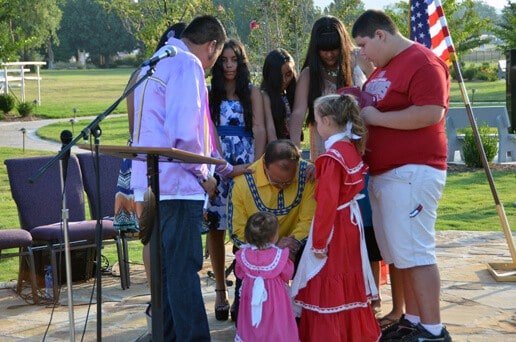Today, Gary Batton leads the third-largest tribal nation in the country, but his life could have turned out to be drastically different.
As a child, Chief Batton’s family lived in Wichita, Kansas. His parents divorced, and his mother, who was full-blood Choctaw, stayed in Kansas. Fortunately, Gary’s dad moved him and his brother Joe back into their Indian home in Oklahoma near Gary’s Choctaw grandfather, aunts, uncles and cousins. This kept him grounded in Chahta culture. “If my dad wouldn’t have been willing to do that, I would have lost a lot of the cultural pieces. I have great memories of spending time with all my family.”
Aside from being apart from his mother, Gary experienced life in poverty. “Probably the biggest piece for me is you start limiting your mind. So, you can’t do this because you don’t have enough money. You can’t do that because of your mom and dad. You start believing I can’t do this because I’m Choctaw, I’m poor, I live in Clayton, Oklahoma, so there are no opportunities for me. You just start getting that depressed mindset.”
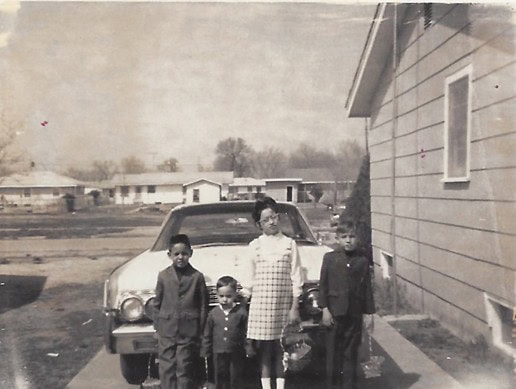
It’s easy to get bogged down in the hard parts of life and feel like things will never turn around. For Chief, his family and his teachers helped him get over those feelings. He related a conversation he had with Ms. Walker, his fifth-grade teacher, who helped him gain the confidence he needed to give his first public speech at a 4-H event.
“Believe it or not, I was terrified to get in front of people to speak,” he remembers. But Ms. Walker wouldn’t take no for an answer. She told him, “You’re capable of doing it; I know you can do it, and I’ll help you do it.” Gary left the event with a blue ribbon and a huge boost of confidence.
Another influential teacher for the future chief was an Ag teacher, Dusty Smallwood, who helped Gary become FFA president, another position that required public speaking. He also remembered his third-grade teacher, Ms. Joslin, who pushed him to the limit in class, and a guidance counselor, Mr. Lockhart, who made sure he got all the help he needed to go to college.
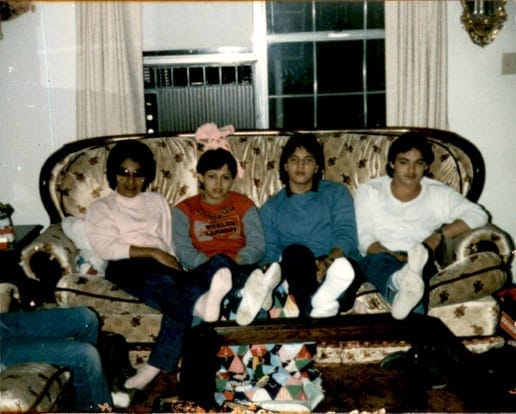
Chief said, “I was so broken in spirit that I got to the point where I just said ‘I don’t care. I don’t want to try.'” Although he hated it at the time, he grew to appreciate the ambitious standards and tough love he got from these teachers and mentors. He is grateful that they saw something special in him and refused to give up.
At home, Gary’s father and grandfather were sticklers for self-discipline. They wanted him to be mentally and physically tough.
“My grandpa used to make me take a drink of water, hold it in my mouth, and I would run a quarter of a mile down and a quarter of a mile back and then spit the water out to see if I could do it,” he said. It’s tempting to swallow that water when you’ve been running, and it’s hot out, but the goal was to push through the times when he wanted to quit.
His challenges as a young man, Chief says, have helped him relate to Choctaw tribal members more, especially Choctaw youth. “I see so many of them who are lacking hope, and we just want to give that spark to them.”
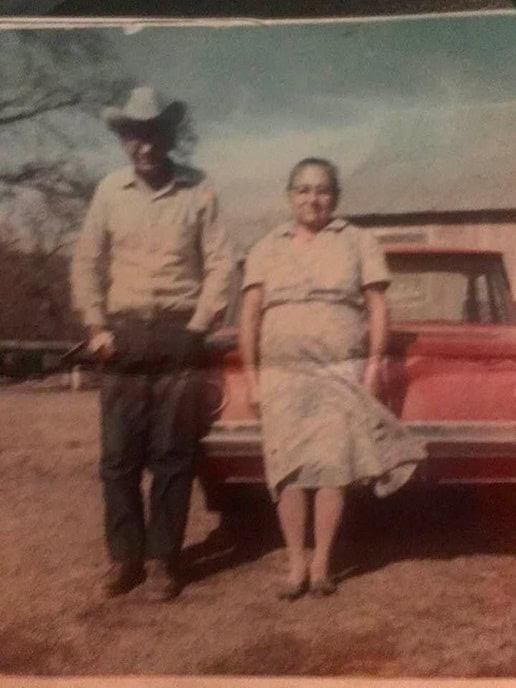
One way to overcome feelings of hopelessness is staying connected to your tribal family.
Many Choctaws are growing up separated from the Chahta culture and may be trying to reconnect or just don’t know their heritage and traditions, which can feel isolating. Being curious and seeking out opportunities to learn the culture, though, is key. Family members, community members, tribal members and elders are great resources, even if you don’t live near them.
“All it takes is a phone call to reach out to your grandma; reach out to your grandpa; reach out to your cousins. That’s all it takes, and they will be more than happy to share it with you,” he said.
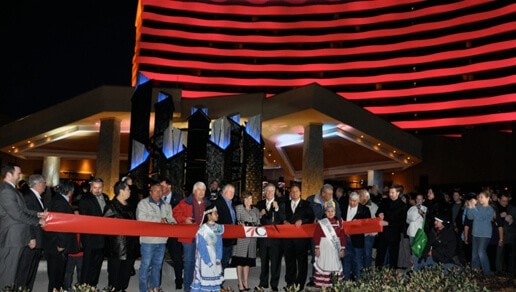
Another way to encourage that spark is by creating a balance between physical, spiritual and mental health.
One of the earliest lessons in finding that balance happened when Batton experienced great tragedy at age fourteen. His older brother Joe committed suicide while their father was recovering from a catastrophic car accident that left him paralyzed from the chest down, a situation that could bring down even the most optimistic youth.
“A lot of people would see that as a bad thing, but I think being broken helped me accept Jesus as my savior and created an awareness at a very young age,” he said. “I think I’ve been blessed to empathize with people’s struggles and strengths.”
A bit of perspective is always helpful in seeing the larger picture and greater good, and something his father used to say has stuck with Chief Batton all these years:
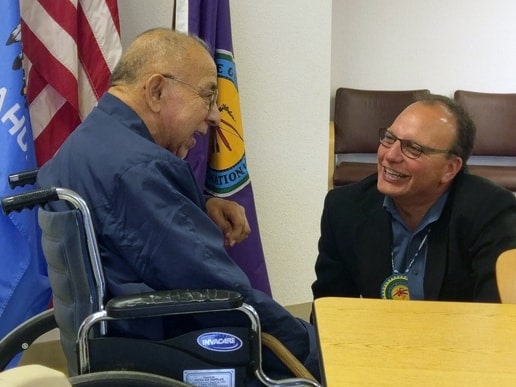
"My dad had the mindset that if you can believe it, you can make it happen... If there's a will, there's a way."
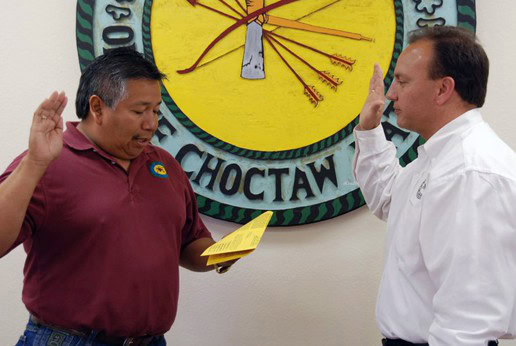
To illustrate that point, Chief relates one of his favorite stories about a tribal member who had lost her sight but completed the interior of her own house with materials the Nation gave her.
In addition to looking for positive outcomes and teachable moments in a tough situation, Chief relies heavily on his faith to help ground him in the things that matter most.
“My belief in God has been huge because at the end of the day, there are things in this world that happen, and you can’t control it. You have to accept that things are out of your control sometimes and be willing to just pray the Serenity Prayer — accept the things I cannot change, have the courage to change the things I can, and the wisdom to know the difference” he said. For Chief, faith, family and culture are the foundations of who he is today.
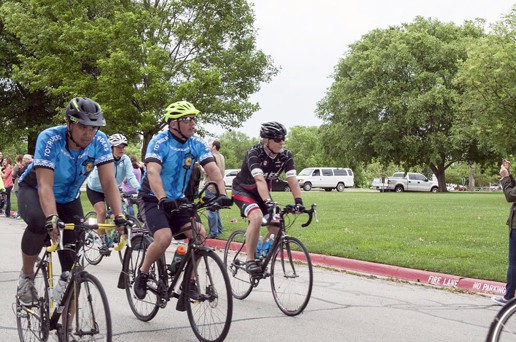
"To have a positive mindset, you have to look for simple, positive things to do, like look up," said Chief. "You have to see that there's a sky, there is a wind blowing, that you're breathing...There are positive things happening all the time. You just need to find the things that give you hope. You are blessed beyond measure, even when you think you are at the most desperate, desolate time of your life."

After graduating from Southeastern Oklahoma State University, Batton wanted to give back to the tribal community and went to work at the Choctaw Nation, where he has been since 1987.
Over his 36-year career at the Choctaw Nation, Batton has done many jobs — purchasing, housing, health, WIC and many others. His positive attitude, people skills and work ethic caught the attention of his supervisors, and he quickly moved up the ranks into leadership.
As the Executive Director of Health, he accomplished one of his greatest goals: building the first tribally-funded health facility in the U.S. The hospital at Talihina was a major part of Batton’s overall vision for the Choctaw health system, a vision that began at age 16, when he had a case of mono that was initially misdiagnosed as cancer.
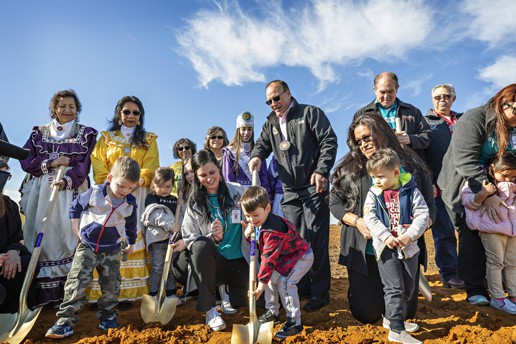
“I thought, ‘I am not going to have a healthcare system that tells a 16-year-old kid that they’ve got cancer and without even knowing that to be true. That’s why my vision was to have the best rural healthcare in America,” he said.
At age 30, he didn’t know anything about building a hospital, but as the leader of the health system, Batton was determined to get it done. He put together a team of like-minded people who were experts in their fields to make the project happen. But that doesn’t mean he didn’t have to get his hands dirty. When a torrential rainstorm threatened to ruin the grand opening, Chief remembers calling on the community to help him put the final touches on the building the night before the ceremony.
“If you can imagine, we don’t have a picture on the wall, we don’t have all the furniture up, we don’t even have sod. So, I’m laying sod, and I’m soaked. Angie, my wife, brings the kids over. Paula Wingfield, our Chief Financial Officer, and many others from the offices in Durant show up to the hospital to hang everything up. The next day, no one knew all the struggles we had. All they saw was a beautiful, brand-new facility,” said Chief.
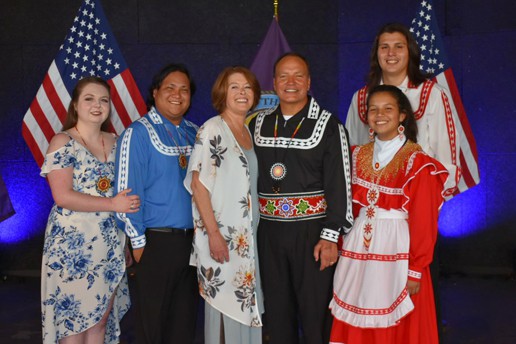
Moments like those, when the community comes together to accomplish something great, are precious to Batton.
At the time, the hospital was the biggest financial commitment to tribal members. It showed them the Nation cared about them and wanted them to have pride in the accomplishments of their tribe.
From the healthcare system, Batton went on to be appointed Assistant Chief under Chief Gregory E. Pyle in 2007. During their administration, the Choctaw Nation grew exponentially, increasing the tribe’s business holdings, expanding programs and services, and bringing hundreds of jobs to the area.
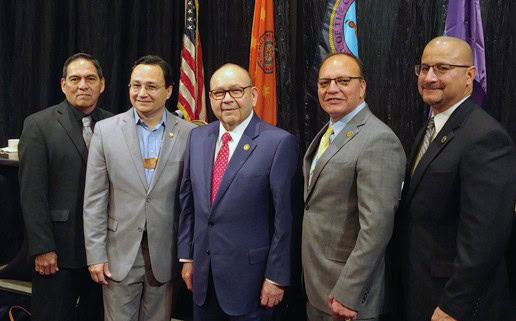
When Chief Pyle retired in 2014, Batton stepped into the role as Chief, a position he has held ever since.
Chief Batton has a long list of accomplishments under his belt, but he says the thing he is most proud of is his family. “We’ve been able to endure,” he said. “We’ve had our ups and downs.” For every challenge they have faced together, there has been a blessing to balance it out.
One of the most important things Chief Batton does when it looks like everything is going wrong is to go out into the community and visit tribal members. “They inspire me; they motivate me,” he said. This has been true of Chief Batton throughout his career. No matter what his job was — housing, health, business, etc. — he has always believed in providing the best resources and growing the wonderful friendships he has with the people he serves.
